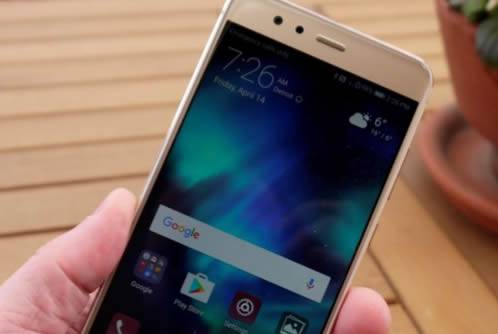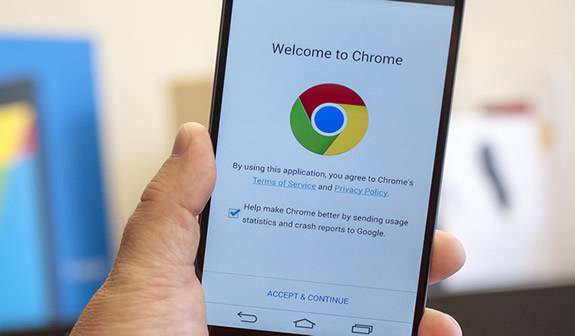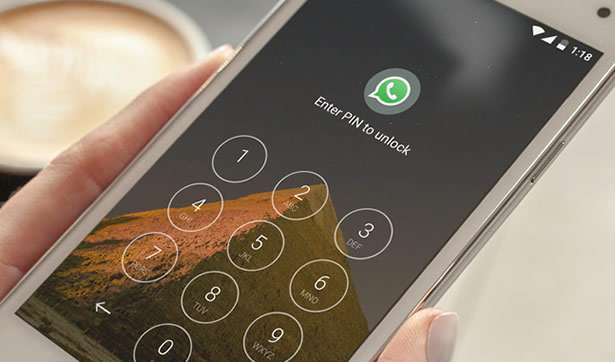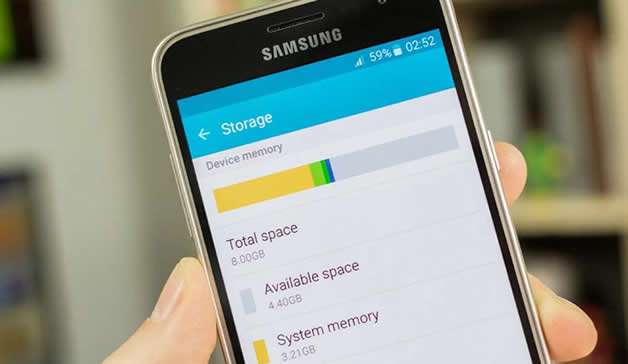No, Chromebooks are not Android-based. They use Google’s Chrome OS operating system which is built on the Linux kernel and designed to work primarily with web applications. For most people, a Chromebook provides a more secure and simplified experience than an Android device because it runs in a “sandboxed” environment that restricts what websites can run and how much access they have to your data.
Does a Chromebook run Android?
Is A Chromebook an Android or Windows?
A Chromebook is a type of laptop computer that runs on the Chrome OS operating system, which is based on Google’s popular Chrome web browser. It is not an Android or Windows device; however, it can access apps and content from both the Google Play Store (for Android) and Microsoft Store (for Windows). In addition to accessing these stores, you can also use your Chromebook to browse the internet, create documents in the cloud with Google Docs, watch videos on YouTube, and more.
What operating system does a Chromebook use?
Chromebooks run on a Linux-based operating system called Chrome OS. Chrome OS is designed to be simple and secure, providing users with access to web applications and online services for a variety of tasks. Additionally, many Chromebooks can now install Android apps from the Google Play Store, increasing their functionality even further.
Can I Install Android apps on Chromebook?
Yes, you can install Android apps on your Chromebook. To do this, you need to first make sure that your device is running the latest version of Chrome OS. Once this is done, you will then be able to access and download Android applications from the Google Play Store. Additionally, some Chromebooks are capable of running Linux applications as well.
Can I Install apps on Chromebook?
Yes, you can install apps on a Chromebook. You can get apps from the Google Play Store and also from other sources like the Chrome Web Store. To install an app from the Google Play Store, you will need to have access to an Android device or emulator that is running at least version 4.1 (Jelly Bean) of the Android operating system. If your Chromebook does not support this version of Android, then you will need to use alternative methods for installing apps such as using web-based stores or downloading them directly from their developer’s website.
Can I install Windows on Chromebook?
Yes, you can install Windows on a Chromebook. However, before starting the process it is important to research whether your device supports the installation of a dual-boot configuration. You will also need to make sure that your Chromebook has an Intel or AMD processor and at least 4GB of RAM. To get started, you’ll need to enable Developer Mode by following these steps:
1. Press and hold Esc + Refresh keys then press Power button
2. Select ‘Powerwash’ from the menu
3. Select ‘Turn On’ when prompted with ‘Enable Developer Mode?’
4. Confirm by pressing enter when asked for confirmation
5. Your Chromebook will reboot in Developer mode once enabled
Once developer mode is enabled, you can use an external USB drive containing Windows 10 setup files and follow instructions provided by Microsoft for setting up Windows 10 on a Chromebook device (https://support.microsoft.com/en-us/windows/install-windows-10-on-your-chromebook-e6d71c8b).
Can all Chromebooks run Android apps?
Yes, most Chromebooks can run Android apps. However, some older models may not be able to do so. To check if your Chromebook is compatible with Android apps, you can visit the Google Play Store on your device or refer to the model’s user manual for compatibility information. Additionally, you can use a website such as chromebookhelp.com which provides detailed instructions on how to install and use Android apps on supported Chromebooks.
What is better a Chromebook or a laptop?
When deciding between a Chromebook and a laptop, it’s important to consider your needs. A Chromebook is best for people who mainly want access to web-based applications such as Google Drive, Gmail, or other cloud services; whereas a laptop is better suited for those who need more power and storage capabilities. When making your decision, here are some factors to keep in mind:
1. Budget: Consider how much you’re willing to spend on the device – both laptops and Chromebooks come at different price points depending on features like size and processor speed.
2. Operating System: If you’re familiar with Windows or MacOS operating systems from prior laptops, that may be the way to go; however if you’re looking for an easy transition into something new then Chrome OS could be right up your alley.
3. Storage Capacity/Processing Power: Laptops usually have more internal storage capacity than Chromebooks which can be good if you intend on storing large files locally but this also depends on the specifications of each model so make sure you check before investing! Additionally, processing power will vary too depending on what type of tasks you plan on doing regularly – gaming or heavy video editing would require more RAM than basic document work or browsing the internet.
By taking these factors into consideration when choosing between a Chromebook and laptop, you should be able to find one that meets all your needs without breaking the bank!
{“@context”:”https://schema.org”,”@type”:”FAQPage”,”mainEntity”:[{“@type”:”Question”,”name”:”Is A Chromebook an Android or Windows?”,”acceptedAnswer”:{“@type”:”Answer”,”text”:”nnA Chromebook is a type of laptop computer that runs on the Chrome OS operating system, which is based on Google’s popular Chrome web browser. It is not an Android or Windows device; however, it can access apps and content from both the Google Play Store (for Android) and Microsoft Store (for Windows). In addition to accessing these stores, you can also use your Chromebook to browse the internet, create documents in the cloud with Google Docs, watch videos on YouTube, and more.”}},{“@type”:”Question”,”name”:”What operating system does a Chromebook use?”,”acceptedAnswer”:{“@type”:”Answer”,”text”:”nnChromebooks run on a Linux-based operating system called Chrome OS. Chrome OS is designed to be simple and secure, providing users with access to web applications and online services for a variety of tasks. Additionally, many Chromebooks can now install Android apps from the Google Play Store, increasing their functionality even further.”}},{“@type”:”Question”,”name”:”Can I Install Android apps on Chromebook?”,”acceptedAnswer”:{“@type”:”Answer”,”text”:”nnYes, you can install Android apps on your Chromebook. To do this, you need to first make sure that your device is running the latest version of Chrome OS. Once this is done, you will then be able to access and download Android applications from the Google Play Store. Additionally, some Chromebooks are capable of running Linux applications as well.”}},{“@type”:”Question”,”name”:”Can I Install apps on Chromebook?”,”acceptedAnswer”:{“@type”:”Answer”,”text”:”nnYes, you can install apps on a Chromebook. You can get apps from the Google Play Store and also from other sources like the Chrome Web Store. To install an app from the Google Play Store, you will need to have access to an Android device or emulator that is running at least version 4.1 (Jelly Bean) of the Android operating system. If your Chromebook does not support this version of Android, then you will need to use alternative methods for installing apps such as using web-based stores or downloading them directly from their developeru2019s website.”}},{“@type”:”Question”,”name”:”Can I install Windows on Chromebook?”,”acceptedAnswer”:{“@type”:”Answer”,”text”:”nnYes, you can install Windows on a Chromebook. However, before starting the process it is important to research whether your device supports the installation of a dual-boot configuration. You will also need to make sure that your Chromebook has an Intel or AMD processor and at least 4GB of RAM. To get started, you’ll need to enable Developer Mode by following these steps: n1. Press and hold Esc + Refresh keys then press Power button n2. Select u2018Powerwashu2019 from the menu n3. Select u2018Turn Onu2019 when prompted with u2018Enable Developer Mode?u2019 n4. Confirm by pressing enter when asked for confirmation n5. Your Chromebook will reboot in Developer mode once enabled nOnce developer mode is enabled, you can use an external USB drive containing Windows 10 setup files and follow instructions provided by Microsoft for setting up Windows 10 on a Chromebook device (https://support.microsoft.com/en-us/windows/install-windows-10-on-your-chromebook-e6d71c8b).”}},{“@type”:”Question”,”name”:”Can all Chromebooks run Android apps?”,”acceptedAnswer”:{“@type”:”Answer”,”text”:”nnYes, most Chromebooks can run Android apps. However, some older models may not be able to do so. To check if your Chromebook is compatible with Android apps, you can visit the Google Play Store on your device or refer to the model’s user manual for compatibility information. Additionally, you can use a website such as chromebookhelp.com which provides detailed instructions on how to install and use Android apps on supported Chromebooks.”}},{“@type”:”Question”,”name”:”What is better a Chromebook or a laptop?”,”acceptedAnswer”:{“@type”:”Answer”,”text”:”nnWhen deciding between a Chromebook and a laptop, it’s important to consider your needs. A Chromebook is best for people who mainly want access to web-based applications such as Google Drive, Gmail, or other cloud services; whereas a laptop is better suited for those who need more power and storage capabilities. When making your decision, here are some factors to keep in mind: nn1. Budget: Consider how much you’re willing to spend on the device – both laptops and Chromebooks come at different price points depending on features like size and processor speed. nn2. Operating System: If youu2019re familiar with Windows or MacOS operating systems from prior laptops, that may be the way to go; however if youu2019re looking for an easy transition into something new then Chrome OS could be right up your alley. nn3. Storage Capacity/Processing Power: Laptops usually have more internal storage capacity than Chromebooks which can be good if you intend on storing large files locally but this also depends on the specifications of each model so make sure you check before investing! Additionally, processing power will vary too depending on what type of tasks you plan on doing regularly u2013 gaming or heavy video editing would require more RAM than basic document work or browsing the internet. nnBy taking these factors into consideration when choosing between a Chromebook and laptop, you should be able to find one that meets all your needs without breaking the bank!”}}]}







